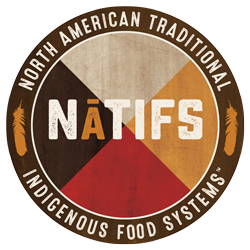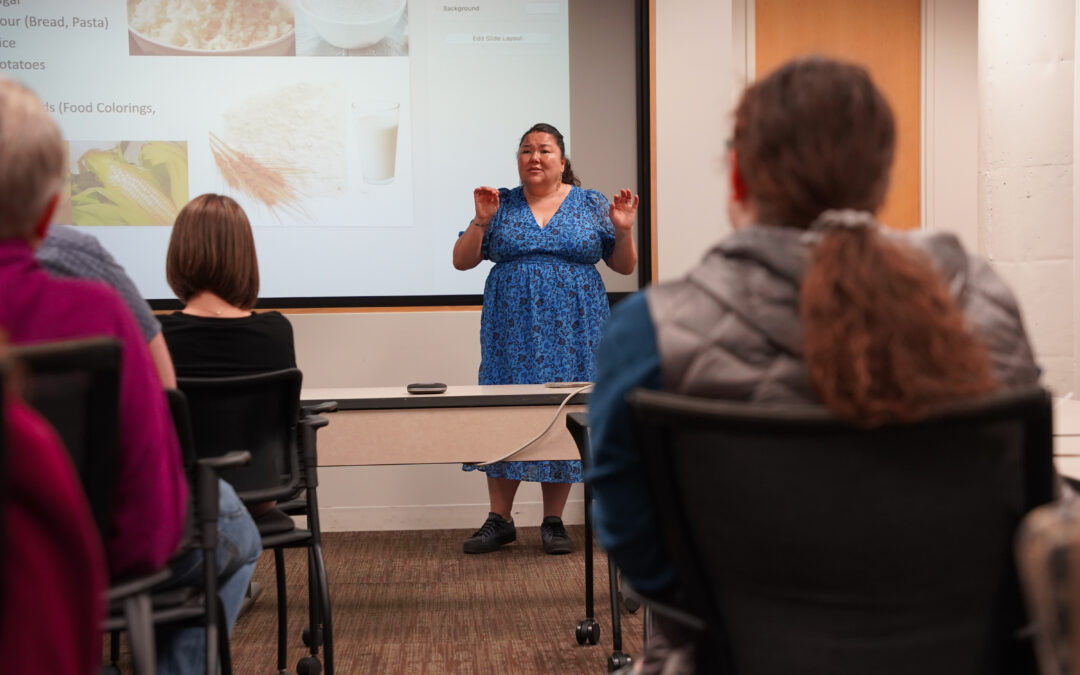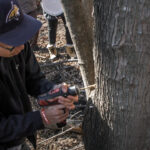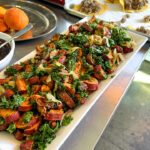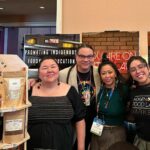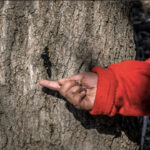Anyone who has been obsessed with the flavors of Owamni or Indigenous Food Lab– and there are lots of us– is in luck, as NATIFS and Indigenous Food Lab roll out its ongoing education class programming– programming that goes far beyond recipe videos, or how to apply Indigenous ingredients to dinner.
Linda Black Elk, ethnobotanist and Educational Programming and Community Engagement Leader at NATIFS says that this education even has the potential and the power to reinstitute trade routes that were decimated by colonialism. Indigenous food knowledge keepers from all over the world will have an opportunity to visit IFL, in an exchange of invaluable information– not only with IFL, but with the world, thanks to the IFL education classroom experience.
“We used to have these really extensive trade routes, which meant that even people in Minnesota, or what’s now North Dakota had access to things like seaweed, or different shells, or chilies and things from the southwest, for instance. Salmon, and things like that. Tribes out here have words for all of those plants and animals, because those trade networks were so extensive, and I’m really looking forward to renewing that– having food sovereignty activists and other experts like that come in and teach us about what they know,” explained Black Elk.
By “us,” she means all of us. Now that the IFL classroom studio is in full swing, there is no limit to the amount of knowledge it is poised to disseminate to the community and even the world.
Ana Garcia Castellanos, Education Programs Coordinator, says this effort is about sharing Indigenous knowledge, not just food.
“Knowledge that has been lost and has been stolen from us for years and years,” she explains. “This is not only about demonstrating a recipe but about the history behind it. This is a big part of decolonizing the kitchen, and it has to be accessible to everybody– we know that the organization has a very fine dining restaurant and then we have IFL, but classes are a more accessible way to get to know Indigenous foodways and traditional knowledge into the mainstream.”
While the broader public can and will benefit from IFL education classes, particular focus goes to tribal communities and reservation areas where gaining access to nutritious, decolonized food is very difficult.
“There are certain things that have been lost in our cultures through the generations. We are still trying to help renew, learn, and gain access to those again,” explains Francesca Garcia, IFL Herbal Educator.
“So part of what we’re doing is this waking everything back up– because we just really don’t want all of this Indigenous knowledge to die. While all of this can be kind of intimidating, our job is to show how accessible and easy it can actually be.”
As an herbalist, Garcia is taking up the charge of educating people on food as medicine, and in addition to delicious recipes, her classes will include infusing plant medicines that are not only tasty but serve health purposes. Examples of course include herbal teas, but even infused vinegars, marinades, oils, and more ways to infuse medicinal properties into the diet. Part of this work is removing the fear and apprehension around applying these techniques at home.
“I just like to show plant medicines that do grow around us, right here in your park or right here in your yard. It doesn’t have to be traveling to the woods and forests, because it’s right here and it’s local.”
One point that founder Sean Sherman and the IFL team have been espousing since the start of their work has been the value that Indigenous knowledge holds for the world at large. As a result, the education classes from NATIFS will be an invaluable asset now, as well as for generations to come.
For example, explains Garcia Castellanos, “BIPOC and Indigenous communities really took care of our environment, we used all parts of the animals, and you notice, nobody called it ‘food waste’ or anything. It was just part of who we were, and who we are.”
She adds that these practices were sustainable for millennia, and as a result, they should not be overly difficult to re-institute, either on an individual or a community-wide level.
“I’m really excited to demonstrate that these things don’t have to be intimidating. You don’t even have to be really strict about a lot of this– people get really fixated on the words and the details, but, for instance, if you’re talking about how to reduce waste in your kitchen, I can showcase a certain ingredient like pepitas. We’re going to do crackers, we’re going to do a milk, and we’re going to do a tofu-like protein out of it, and use every part of that ingredient.”
From a seemingly simple video such as this one, the team can demo reducing food waste, plant-based eating, Indigenous history, Indigenous food sovereignty, and Indigenous food systems and knowledge.
“We can be touching on a little bit of everything.”
Indigenous Food Lab staffers are only one component of the educational breadth that the studio will be capable of– knowledge keepers from all over the state, country, and world will be invited in to share their expertise and wisdom with anyone who chooses to access it.
It’s important to note that even if only one member of a community chooses to engage with IFL education classes, that could mean an entire community partaking in that knowledge if that person shares and disseminates what they learn. Schools and other youth learning opportunities including internships are a critical IFL initiative, as young people have the most to gain, as well the most impact to offer from Indigenous knowledge.
Upcoming goals for the classroom include a course schedule that people can plan for weeks or even months in advance, collaborations with other nonprofit organizations and Indigenous groups, and integration into school curriculums.
